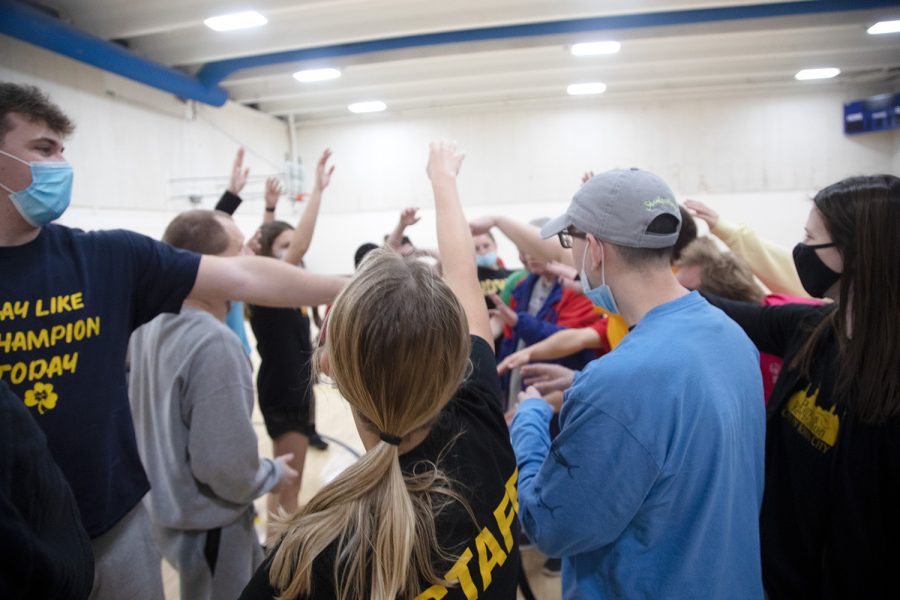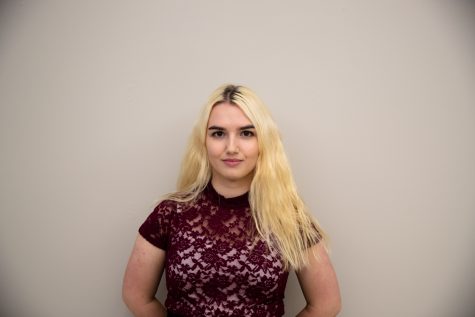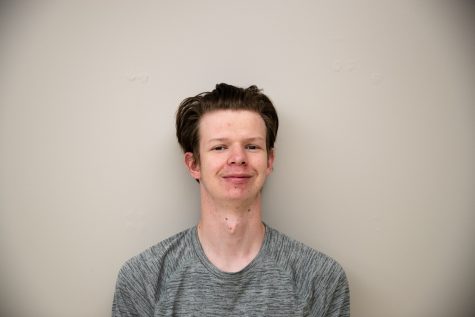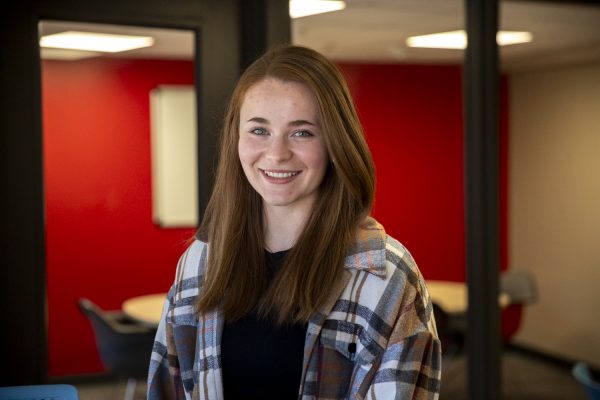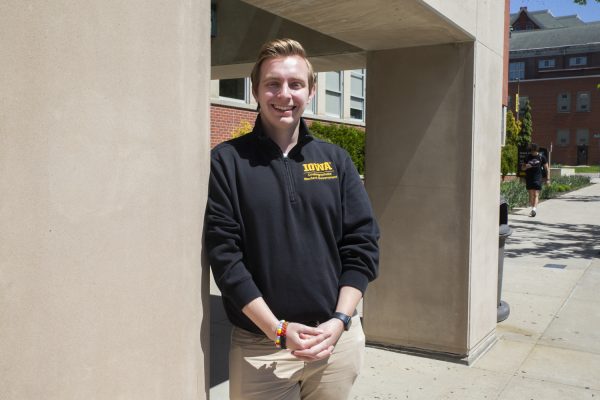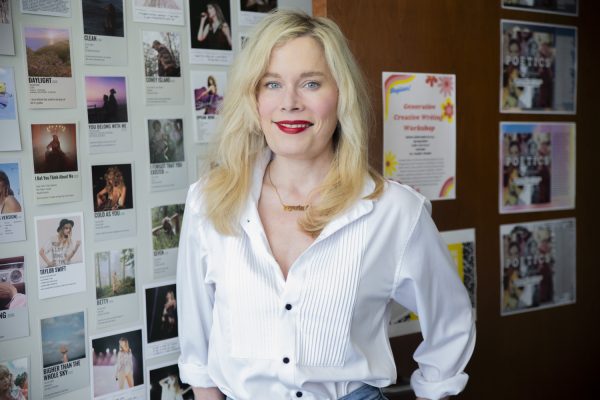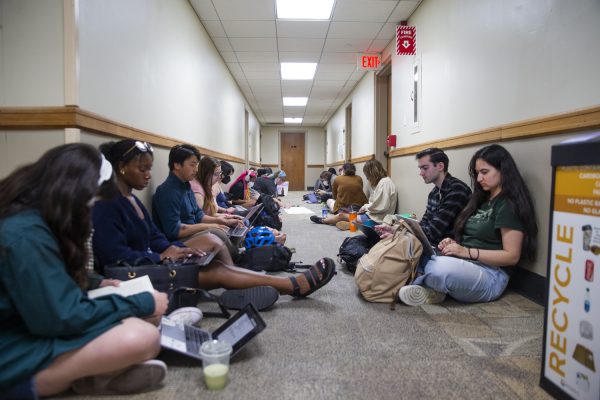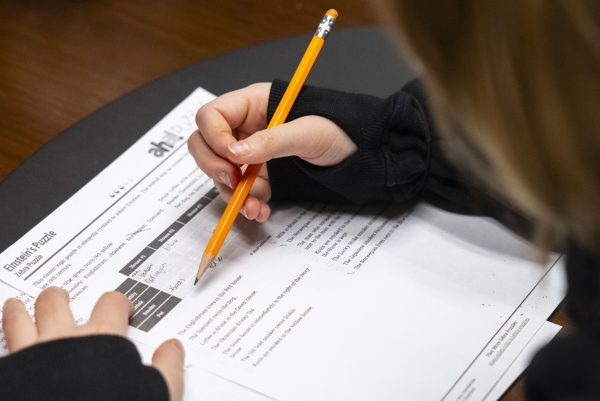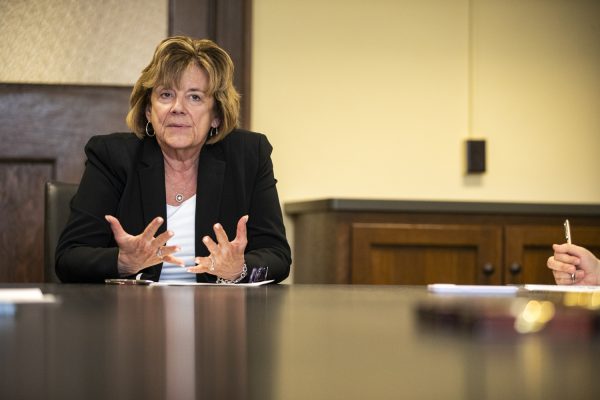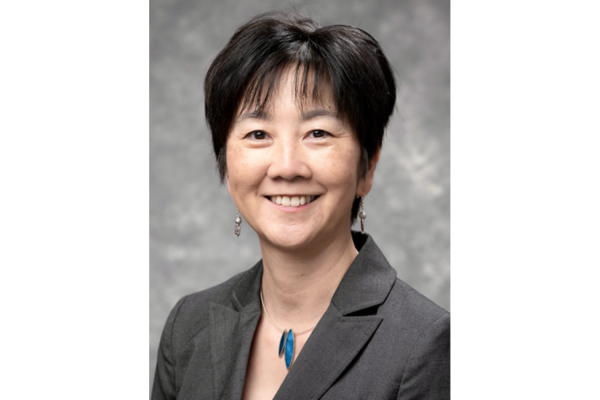University of Iowa nationally recognized for inclusive athletic programs
The University of Iowa was nationally recognized as a Special Olympics Unified Champion School for its efforts to include students with disabilities in intramural programs.
Unified Sports players and coaches put their hands in the middle during a practice at the Robert A Lee Recreation Center in Iowa City on Thursday, Dec. 2, 2021. The University of Iowa has become nationally recognized for its support of Unified Sports.
December 5, 2021
The Special Olympics organization recognized the University of Iowa as a Special Olympics Unified Champion School, a program that recognizes schools for their inclusion of students with disabilities in athletics.
The UI is the first college in Iowa and the 68th in the U.S. to receive the recognition. To receive recognition from the Special Olympics, schools need to meet ten criteria.
Among the criteria are offering Unified Sports at least two seasons throughout the school year, having participating coaches and students with Special Olympics Unified Sports training, and recognizing Unified Sports in a similar style to other campus intramural and club sports.
“It’s definitely a prestigious recognition, and so it is achievable,” said Bryan Coffey, Special Olympics Iowa director of Unified Programs. “They do have to show that they’ve pursued the criteria and they’ve done it with fidelity. So, they’re truly and honestly pursuing an inclusive model by pursuing those 10 points.”
Unified Programs is a program n intramural sports. Coffey said there are over 16,000 Special Olympic athletes in Iowa, but only four schools in the state are nationally recognized.
Unified Sports, the intramural leagues at the UI, and the UI’s Special Olympics student chapter collaborate to foster an encouraging and welcoming environment for Special Olympic athletes, said UI public health student Jenah McCarty, a member of the section of Unified Sports that works with Special Olympics.
“All of those goals are something we look at and always strive to meet,” McCarty said.
Athletes play sports such as rowing, basketball, flag football, and bowling, Sydney Prochaska, president of UI’s Special Olympics student organization, said.
“When we show up to play unified sports, we’re all on the same level,” Prochaska said. “We’re teammates above anything, and we’re there to play volleyball.”
Unified Sports and the UI’s Special Olympics student organizations were not actively trying to obtain this recognition, Prochaska said.
Rather, the organizations stumbled upon the recognition accidentally while trying to create a good space for Special Olympic athletes, McCarty said.
“It was a little bit of a surprise,” McCarty said. “I guess just because we were just showing up week by week, trying to implement all that it means to be volunteers at Special Olympics Iowa. Not necessarily trying to check off boxes, but it just happened that our program was doing well enough and doing what we’re supposed to be doing.”
Prochaska said athletics helps break down barriers between students and allows people with disabilities to become more involved in the community.
“It’s the one place in the world that they’re treated the same and they’re not looked down upon,” Prochaska said. “And people don’t treat them differently, it’s very inclusive.”
Prochaska said since the award was announced last month, she has received more messages than ever before from people wanting to get involved with Special Olympics and its affiliated organizations on campus.
“It brings more recognition to us on campus and in the community and gets more people interested in getting involved,” McCarty said. “But I think the standards we set and things we do will be pretty much the same.”
Coffey said his hope is that the recognition will encourage other schools in the state to make their athletic programs more inclusive.
While the recognition is exciting and will encourage more involvement, Prochaska and McCarty said they don’t think that this new title will change how their operations will run.
“We’ve all been implementing the components and standards that we already have by becoming a banner school,” McCarty said. “I think we’ll just continue to do as we’ve been doing.”



